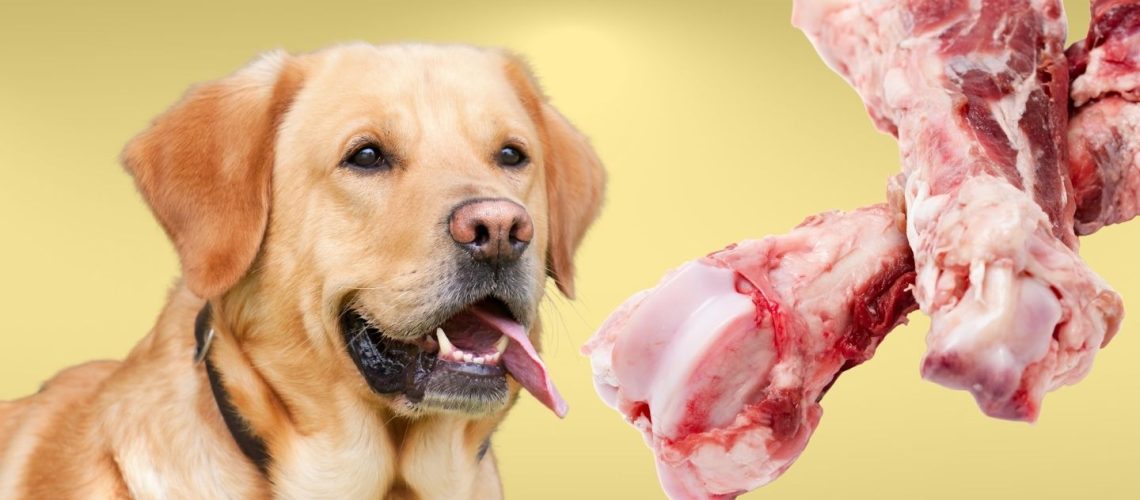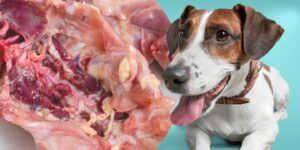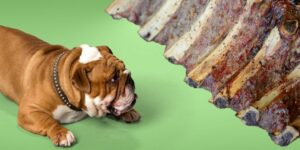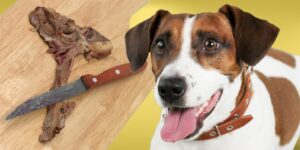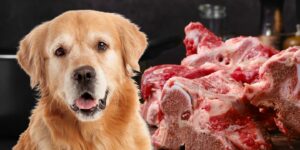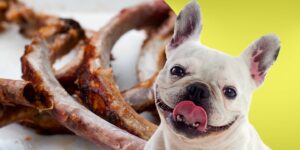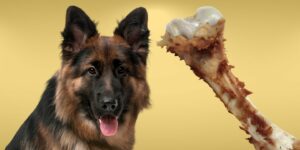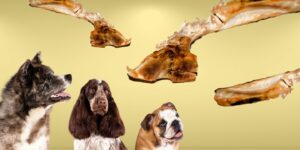The short answer is no; dogs should not eat lamb bones. While bones can provide some nutritional benefits for dogs, such as improving their dental health, the risks of feeding them lamb bones far outweigh any potential benefits.
Why Lamb Bones Are Dangerous for Dogs
One of the main reasons that lamb bones are dangerous for dogs is that they can splinter when chewed or ingested. These sharp bone fragments can cause internal injuries to a dog's mouth, throat, and digestive tract. In severe cases, splintered bones can even cause life-threatening injuries.
Another reason that lamb bones are dangerous for dogs is that they can cause blockages in the digestive tract. This can be especially dangerous for small dogs, as their smaller size means that even a small bone can cause a blockage.
Understanding the Anatomy of Lamb Bones
Before diving into the risks associated with lamb bones, it is important to understand their structure and why they pose a danger to dogs.
Bone Composition
Lamb bones consist of marrow, compact bone, and spongy bone.
Differences Between Lamb Bones and Other Animal Bones
Lamb bones differ from other animal bones in their size, density, and tendency to splinter.
The Nutritional Benefits of Bones for Dogs
Despite the risks, bones can provide some nutritional benefits for dogs if given safely and under supervision. These benefits can include dental health improvements, such as removing plaque and tartar, as well as strengthening gums. Additionally, bones contain essential nutrients like calcium, phosphorus, and collagen.
Recognizing and Managing Bone-Related Emergencies in Dogs
It is crucial for dog owners to be aware of the signs of bone-related emergencies and know how to respond appropriately.
Signs of Bone Ingestion and Related Injuries
Some signs of bone ingestion and related injuries include gagging or retching, pawing at the mouth, lethargy, restlessness, and abdominal pain or swelling.
What To Do If Your Dog Ingests a Lamb Bone
If your dog ingests a lamb bone, contact your veterinarian immediately. Monitor your dog closely for any changes in behavior, and do not attempt to induce vomiting or remove the bone yourself.
Preventing Lamb Bone Ingestion
To keep your dog safe, it is essential to take preventive measures to ensure they do not have access to lamb bones. Proper food disposal, such as securing garbage cans and keeping food preparation areas clean, is important. Training and supervising, including teaching the "leave it" command and supervising your dog during meal times and when around food, can help.
Safer Chewing Options for Dogs
Instead of lamb bones, consider providing your dog with safer alternatives that still offer dental benefits and satisfy their chewing instincts. Commercially available dental chews, such as rawhide alternatives and edible dental chews, are a good option. Natural chewing options like bully sticks, deer antlers, and frozen carrots can also be used.
Final Thoughts
While lamb bones may seem like a tempting treat for your dog, the associated risks make them an unsafe option. By providing your dog with safer chewing alternatives and practicing proper food disposal and supervision, you can help ensure your pet's health and well-being.

